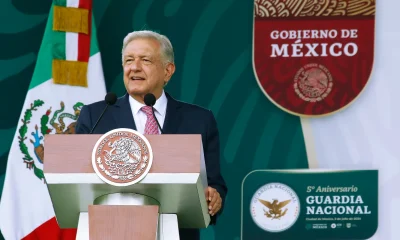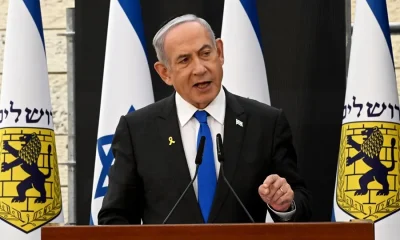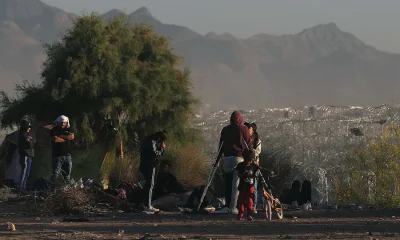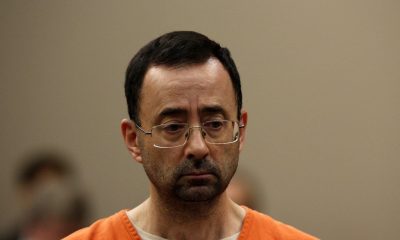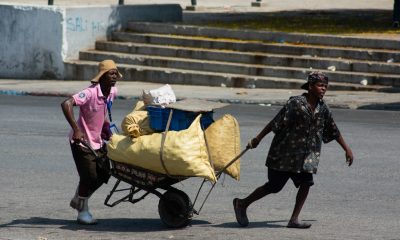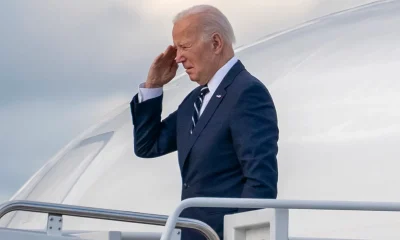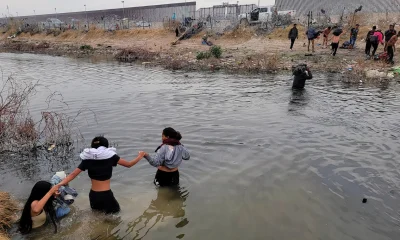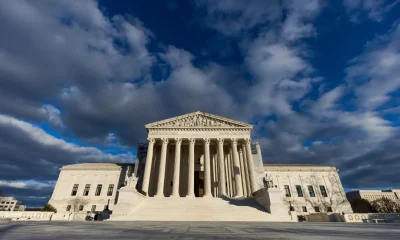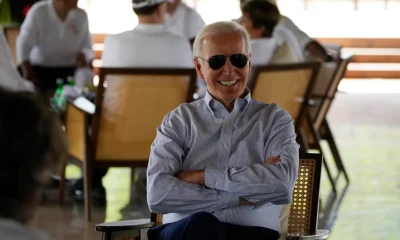International
The pro-Palestinian student movement in the United States looks at itself in history to continue
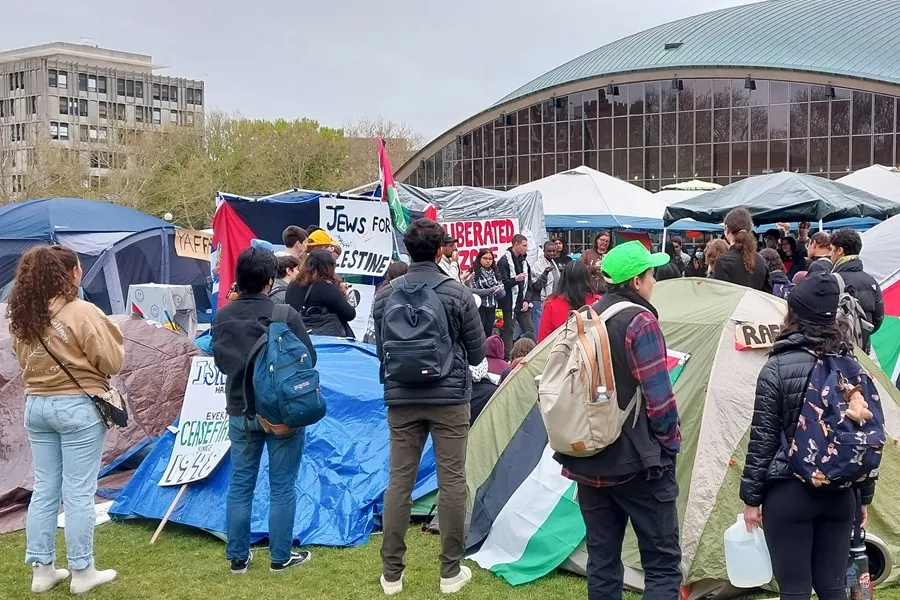
Opposition to the war in Gaza has triggered a student movement in the United States not seen since the protests against apartheid in South Africa in the 1980s and in rejection of the Vietnam War in the 60s, although the difference is the strong police reaction to more peaceful rallies.
The one that has already been called by historians such as Robert Cohen, of New York University, as the largest university movement in the United States in the 21st century has parallels with the uprisings of the past, but is also unique in forcing Washington to “be more careful with what it does with its military help.”
For Juan González, who was one of the leaders of the 1968 protests at Columbia University (New York), today’s demonstrations are much more peaceful but are facing more immediate repression.
“Never in the history of student protests has a protest been suppressed for so little violation of the law,” said Cohen, an expert in social movements, in a recent interview.
“Basically they are setting up camps in public spaces, they are not interfering with classes (…) we took several buildings in a single day,” he said in an interview with EFE González, 76, who considers that the police response is being much more severe on this occasion, with eviction of peaceful camps and more than 2,000 arrested.
Authorities from both New York City in the United States and the university were willing to negotiate with González and the other student leaders, he explained, something that has only happened in a handful of educational centers during the current movement.
In educational centers such as the University of California in Los Angeles (UCLA), the University of Texas in Austin or the University of South Florida in Tampa in the United States, state and local law enforcement agencies have entered to evict the camps and forcibly expel the students shortly after they congregated with the approval of the university authorities.
Another of the main differences is the historical context: the student protests of 1968 against the Vietnam War were included in a much larger movement that transcended the campuses and that included other causes such as the rejection of racial discrimination.
“Our strike in Columbia began only a couple of weeks after Martin Luther King was killed (…) there were riots and riots in more than 100 cities across the country,” explained González, who recalls that the worst moment of police repression was when in 1970 the Ohio National Guard killed four students at Kent State University.
The students’ requests, however, have similarities. Currently, university students ask educational centers to cut all kinds of ties with Israel and its military industry, while in 1968 they asked the institution to cut ties with the IDA, a center that was investigating weapons to be used in Vietnam.
The protests of now are also loaded with an “internationalist perspective” something that for the historian of the Massachusetts Institute of Technology (MIT) Tanalís Padilla did not happen years ago in the United States.
“Within the empire, the country’s actions are rarely taken aware of,” Padilla said of these protests against injustices that are happening “in another part of the world.”
The author of “After Zapata” indicated that this student movement has similarities with the fight against the Vietnam war in the 70s and the civil rights claims in the 60s, but contrary to the first case, “U.S. soldiers are not dying” and, in the second, there was no internationalist vision and solidarity with the suffering of the people of Palestine.
“It is a movement of international solidarity that has not been seen in a long time, which gives hope and it is very important that it happens in the most powerful country in the world,” said the teacher, a Jewish descendant of victims of the Holocaust and who has participated in the MIT student camp.
International
U.S. Senate Rejects Budget, Bringing Government Closer to Shutdown Amid DHS Dispute

The U.S. Senate voted on Thursday against a budget proposal in a move aimed at pressuring changes at the Department of Homeland Security (DHS), following the killing of two civilians during a deployment of immigration agents in Minneapolis.
All Senate Democrats and seven Republican lawmakers voted against the bill, which requires 60 votes to advance, pushing the country closer to a partial government shutdown that would cut funding for several agencies, including the Pentagon and the Department of Health.
The rejection came as Senate leaders and the White House continue negotiations on a separate funding package for DHS that would allow reforms to the agency. Proposed measures include banning Immigration and Customs Enforcement (ICE) agents from wearing face coverings and requiring them to use body-worn cameras during operations.
The vote took place just hours after President Donald Trump said he was “close” to reaching an agreement with Democrats and did not believe the federal government would face another shutdown, following last year’s record stoppage.
“I don’t think the Democrats want a shutdown either, so we’ll work in a bipartisan way to avoid it. Hopefully, there will be no government shutdown. We’re working on that right now,” Trump said during a Cabinet meeting at the White House.
International
Trump Says Putin Agreed to One-Week Halt in Attacks on Ukraine Amid Extreme Cold

U.S. President Donald Trump said on Thursday that he secured a commitment from Russian President Vladimir Putinto halt attacks against Ukraine for one week, citing extreme weather conditions affecting the region.
“Because of the extreme cold (…) I personally asked Putin not to attack Kyiv or other cities and towns for a week. And he agreed. He was very pleasant,” Trump said during a Cabinet meeting broadcast by the White House.
Trump acknowledged that several advisers had questioned the decision to make the call.
“A lot of people told me not to waste the call because they wouldn’t agree. And he accepted. And we’re very happy they did, because they don’t need missiles hitting their towns and cities,” the president said.
According to Trump, Ukrainian authorities reacted with surprise to the announcement but welcomed the possibility of a temporary ceasefire.
“It’s extraordinarily cold, record cold (…) They say they’ve never experienced cold like this,” he added.
Ukrainian President Volodymyr Zelensky later commented on the announcement, expressing hope that the agreement would be honored.
International
Storm Kristin Kills Five in Portugal, Leaves Nearly 500,000 Without Power

Storm Kristin, which battered Portugal with heavy rain and strong winds early Wednesday, has left at least five people dead, while nearly half a million residents remained without electricity as of Thursday, according to updated figures from authorities.
The revised death toll was confirmed to AFP by a spokesperson for the National Emergency and Civil Protection Authority (ANPEC). On Wednesday, the agency had reported four fatalities.
Meanwhile, E-Redes, the country’s electricity distribution network operator, said that around 450,000 customers were still without power, particularly in central Portugal.
Emergency services responded to approximately 1,500 incidents between midnight and 8:00 a.m. local time on Wednesday, as the storm caused widespread disruptions.
The Portuguese government described Kristin as an “extreme weather event” that inflicted significant damage across several regions of the country. At the height of the storm, as many as 850,000 households and institutions lost electricity during the early hours of Wednesday.
Several municipalities ordered the closure of schools, many of which remained shut on Thursday due to ongoing adverse conditions.
Ricardo Costa, regional deputy commander of the Leiria Fire Brigade, said residents continue to seek assistance as rainfall persists.
“Even though the rain is not extremely intense, it is causing extensive damage to homes,” he noted.
In Figueira da Foz, a coastal city in central Portugal, strong winds toppled a giant Ferris wheel, underscoring the severity of the storm.
-

 Central America4 days ago
Central America4 days agoGuatemala seizes over a ton of cocaine hidden in flour at Pacific port
-

 International5 days ago
International5 days agoDelcy Rodríguez seeks political agreements after Maduro’s ouster
-

 International4 days ago
International4 days agoHistoric snowstorm paralyzes Toronto after 60 centimeters of snow
-

 Central America3 days ago
Central America3 days agoGuatemala Police Arrest Prison Guard Caught in the Act of Extortion
-

 Central America3 days ago
Central America3 days agoHonduras swears in conservative president Asfura after disputed election
-

 Central America3 days ago
Central America3 days agoBukele leads public trust rankings as UCA survey highlights gains in security
-

 International4 days ago
International4 days agoSpain’s irregular migrant population rises to 840,000, study finds
-

 International5 days ago
International5 days agoFederal immigration agents kill man in Minneapolis, sparking protests and outrage
-

 International2 days ago
International2 days agoFootball Fan Killed in Clashes After Colombian League Match
-

 International3 days ago
International3 days agoWinter Storm Fern Leaves 30 Dead and Over One Million Without Power Across the U.S.
-

 Central America2 days ago
Central America2 days agoGuatemala President Says Starlink Terminal Found Inside Prison
-

 Sin categoría3 days ago
Sin categoría3 days agoEight Killed in Series of Armed Attacks in Ecuador’s Manabí Province
-

 International3 days ago
International3 days agoDoomsday clock moves to 85 seconds before midnight amid rising global risks
-

 International4 days ago
International4 days agoRights group says nearly 6,000 killed in Iran protest crackdown
-

 International2 days ago
International2 days agoMissing Spanish Sailor Rescued After 11 Days Adrift in Mediterranean
-

 International2 days ago
International2 days agoRubio Says U.S. Could Participate in Follow-Up Russia-Ukraine Talks
-

 International3 days ago
International3 days agoSpain approves plan to regularize up to 500,000 migrants in Historic Shift
-

 Sin categoría3 days ago
Sin categoría3 days agoEl Salvador Launches Fourth Year of Ocean Mission to Protect Marine Ecosystems
-

 International4 days ago
International4 days agoVenezuela frees at least 80 political prisoners, NGO says
-

 International4 days ago
International4 days agoEU launches new probe into X over AI-generated fake nude images
-

 International14 hours ago
International14 hours agoU.S. Senate Rejects Budget, Bringing Government Closer to Shutdown Amid DHS Dispute
-

 International4 days ago
International4 days agoSevere winter storm grips U.S., leaves multiple dead as extreme cold persists
-

 International4 days ago
International4 days agoFrance debates ban on social media for children under 15
-

 International14 hours ago
International14 hours agoStorm Kristin Kills Five in Portugal, Leaves Nearly 500,000 Without Power
-

 International14 hours ago
International14 hours agoTrump Says Putin Agreed to One-Week Halt in Attacks on Ukraine Amid Extreme Cold
-

 International14 hours ago
International14 hours agoMan Arrested After Vehicle Crashes Into Jewish Institution in Brooklyn

























